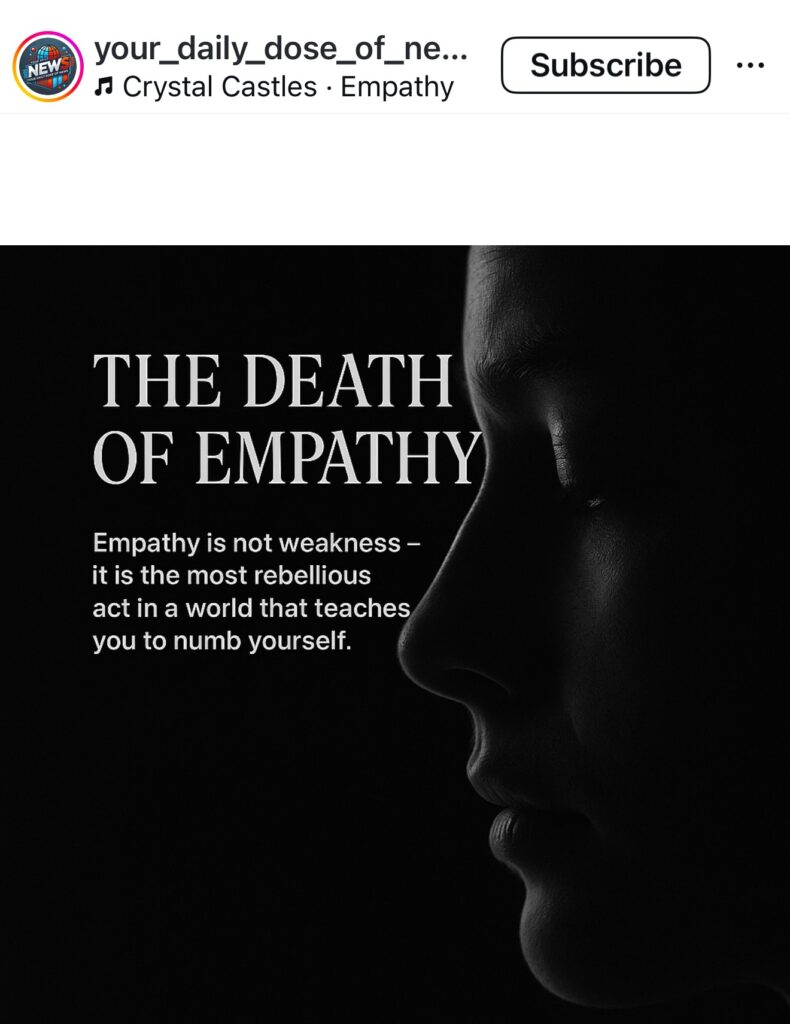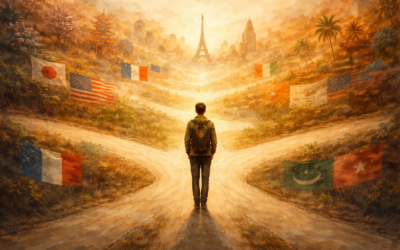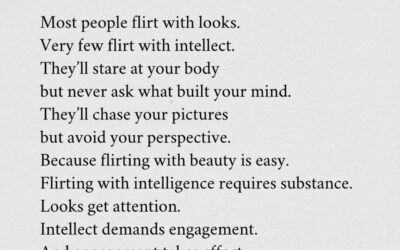In a world obsessed with control, performance, and polished appearances, empathy is slipping quietly out the back door. Not because it isn’t needed, but because it doesn’t fit. It doesn’t sell. It doesn’t scale. It slows things down. It makes us feel—and in a culture that thrives on distraction and emotional detachment, that’s a threat.
I really understand this. Through my own healing journey, I went from being deeply empathetic to waking up—and with that awakening came the challenge of finding a middle path. A path where I could honor my empathy while still navigating a world filled with unconsciousness.
We’ve engineered a society where reacting is easier than reflecting. Where speed is mistaken for truth. Where cruelty cloaked in “honesty” is applauded as strength. And in the age of AI, where intelligence is mimicked and emotions are simulated, the gap between connection and performance is only growing wider. AI might mimic empathy. But it will never ache like a human does.
Real empathy is not emoji-deep. It’s disruptive. It’s the quiet willingness to stand in the storm of someone else’s pain. To pause—really pause—in a timeline that never stops. To witness, without fixing. To feel, without filtering. In doing so, we remember our own humanity.
And yet, it’s vanishing. Numbed by curated outrage and algorithm-fed indignation, we’re forgetting how to feel with. We know how to argue, but have forgotten how to ask. We know how to scroll, but not how to see.
So the question is this: As we build smarter machines, will we remember what it means to be deeply, rebelliously human?
Because without empathy, we may end up with a perfectly efficient world… that’s not worth living in.





0 Comments